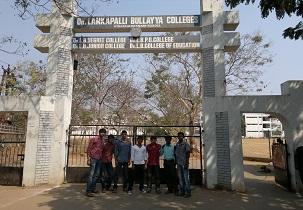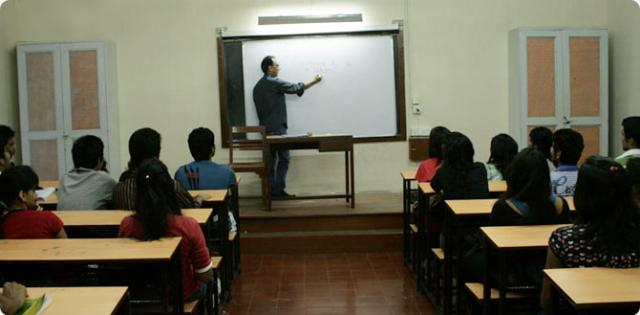Dr. Ambedkar Government Law College in Chennai stands as a historic institution with a legacy of legal education since Nestled near the Madras High Court, its prime location offers students unparalleled access to practical legal exposure. While the college is renowned for its academic rigor and heritage campus, its placement landscape reflects a distinct focus on traditional legal pathways. The placement scenario here diverges from corporate-heavy law schools, emphasizing litigation, public service, and specialized practice roles.
Table of Contents
DR.AGLC-Placement Overview
| Branch/Course | Average Package (LPA) | Highest Package (LPA) | % Placed / No. Placed | College Average Placement (LPA) | Additional Info | Student Review on Placement Data |
| B.A. LL.B. | 3.5 | 8.5 | 40% | 4.2 | Limited corporate recruiters; focus on litigation roles | Placement support is minimal; most students pursue independent job searches |
| LL.B. | 3.2 | 7.8 | 35% | 4.2 | Primary opportunities in district courts and small firms | Campus placements are scarce; networking is essential for opportunities |
| LL.M. | 4.1 | 9.2 | 30% | 4.2 | Roles in academia and specialized legal practice | Few structured placement drives; alumni networks aid job searches |
DR.AGLC-Analysis of Placement Trends
The B.A. LL.B. program records a 40% placement rate, with the highest package reaching 8.5 LPA. However, corporate recruitment remains sparse, aligning with the college’s emphasis on litigation and public service roles. Students frequently engage in independent job searches due to limited structured support from the placement cell. The LL.B. program shows a similar trend, with 35% of graduates securing positions predominantly in district courts and small legal firms. Networking emerges as a critical tool for opportunities, reflecting the informal yet effective pathways many students navigate. For LL.M. graduates, higher average packages (4.1 LPA) and specialized roles in academia or niche legal practice highlight the value of advanced credentials. Despite this, the 30% placement rate underscores challenges in institutional recruitment drives. Alumni networks and self-initiated efforts often bridge this gap, enabling access to roles in research, policy, and judiciary services.
DR.AGLC-Institutional Placement Environment
Dr. Ambedkar Government Law College fosters a placement ecosystem centered on experiential learning over corporate partnerships. Proximity to the Madras High Court facilitates internships and apprenticeships, allowing students to build practical skills early. This exposure is pivotal for securing roles in litigation, where reputation and courtroom experience outweigh formal placement processes. The college’s legacy including notable alumni in judiciary and public service further strengthens networking avenues. However, structured campus recruitment is limited. Unlike private law schools, corporate law firms and multinational companies rarely conduct dedicated drives here. Instead, district courts, government agencies, and small to mid-sized firms form the core recruiters. The placement cell primarily coordinates guest lectures and skill workshops, while students rely on bar council exams, state judiciary services, and alumni referrals for career advancement.
DR.AGLC-Career Pathways and Industry Context
Graduates from government law colleges like Dr. Ambedkar often pursue careers aligned with public interest and traditional legal practice. Litigation remains the dominant path, with many opting for independent practice after gaining trial experience. Others clear state judicial services exams or join legal aid organizations. LL.M. graduates frequently transition into academia or specialized fields like constitutional or environmental law, where advanced expertise commands higher remuneration. The broader legal sector in India shows growing demand in corporate law, but this trend hasn’t significantly permeated government colleges. These institutions maintain a stronghold in producing litigators and public prosecutors, roles crucial to India’s judicial backbone. The college’s location in Chennai a hub for intellectual property and maritime law also opens doors to niche specializations, though students typically access these through external applications.
DR.AGLC-Strengths and Student Strategies
The college’s historic campus, extensive library, and moot court facilities provide a robust foundation for legal training. Its alumni network, including figures in high judiciary and policy-making, offers mentorship and referral opportunities. To compensate for limited on-campus placements, students proactively engage in:
- Courtroom internships: Building relationships with practicing lawyers.
- Competitive exams: Focusing on state judicial services or public sector commissions.
- Industry events: Participating in national moot courts and seminars to connect with recruiters.
This self-driven approach, while demanding, cultivates resilience and practical acumen. Placements at Dr. Ambedkar Government Law College reflect its commitment to shaping versatile legal professionals for public service and litigation. While structured corporate recruitment is minimal, the institution’s legacy, location, and real-world exposure empower students to carve successful careers through initiative and networking. For those seeking roles in judiciary, academia, or social advocacy, the college remains a respected launchpad, blending heritage with pragmatic legal training.








